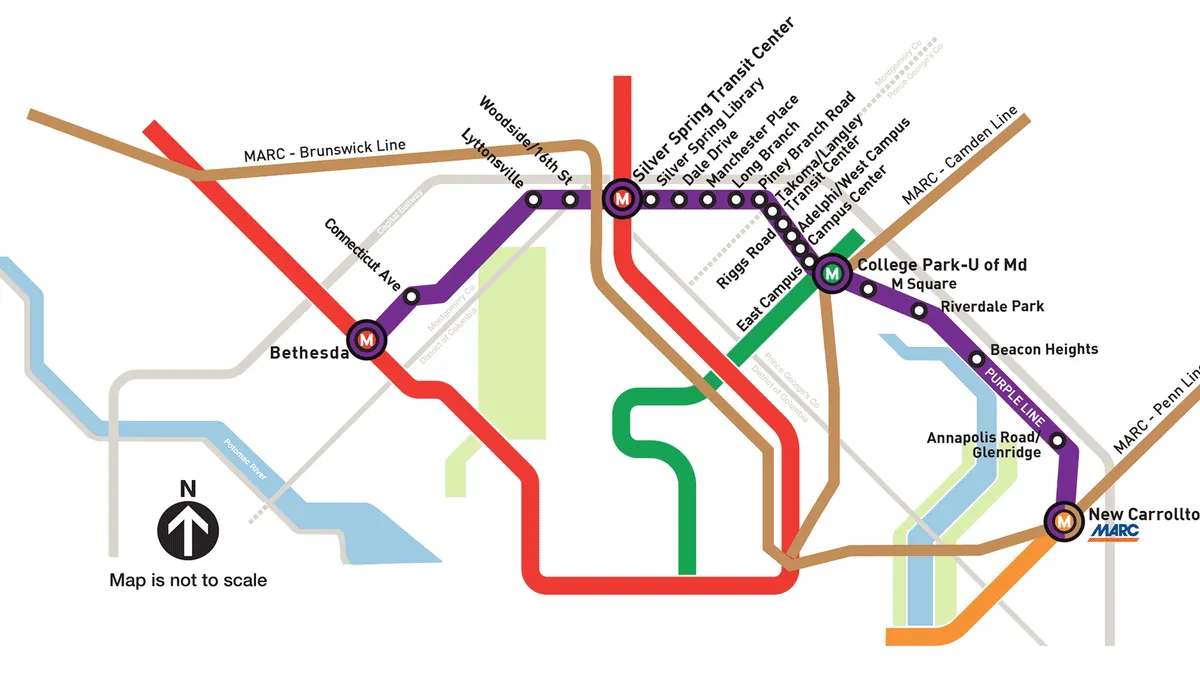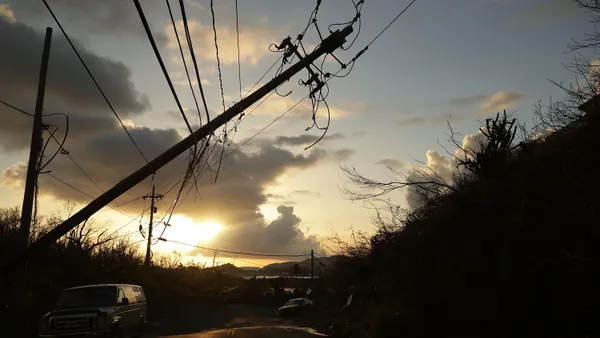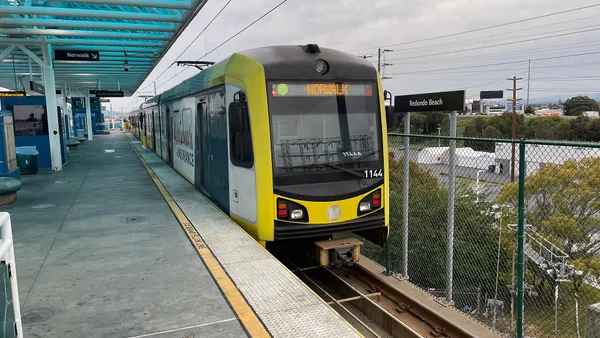Dive Brief:
- A U.S. District Judge's Wednesday decision requiring another ridership analysis of the $5.6 billion, 16-mile Maryland Purple Line light rail system could delay the project and threaten plans already underway, according to The Washington Post.
- The judge ruled that federal approval of the Maryland Transit Administration's plan be removed until the new study is completed. He said state officials could not ignore the possible impact of the overall Washington Metropolitan Area Transit Authority system's recent safety issues and declining ridership on the proposed Purple Line.
- Maryland officials said the state will appeal the judge's decision. His ruling comes less than a week before the federal government was expected to designate $900 million toward construction of the system. After the decision transit officials canceled Monday's event for the federal funding infusion.
Dive Insight:
Construction on the light rail system was initially scheduled to begin this fall, but the new court decision could put that start date into question. MTA officials have said that a new ridership analysis could delay construction by six months and jeopardize their public-private partnership with the Fluor-led Purple Line Transit Partners.
The judge's decision follows a lawsuit filed in 2014 by Chevy Chase, MD, residents and Friends of the Capital Crescent Trail, who want to stop the project. MTA officials have argued that the Purple Line would not be affected by the Metro's structural problems, as it will be owned and operated by the state, not by Metro. However, opponents point to the fact that an estimated 27% of Purple Line riders will connect to the Metro system.
Last month, Maryland Attorney General Brian Frosh said the "complex contractual arrangements" involved with the project's P3 mean that even a minor delay from a new ridership forecast could negatively impact financing and the construction schedule. Under the P3, Purple Line Transit Partners will operate and maintain the rail line for 30 years after finishing construction.
In June, the Purple Line Transit Partners announced that it had closed its deal with the MTA for the financing, design-build, operation and maintenance of the rail system. The state is contributing $3.3 billion, and Purple Line Transit Partners is financing $1 billion for the project, which was initially scheduled to open in 2022.
The project is one of the biggest P3s in the U.S. and is only the second to include a private financing component. P3s are gaining traction as a method for states — such as New York and Georgia — to make the most of their infrastructure budgets. The partnership structure can allow governments to spread out available funds across more projects and offer the private sector's expertise, according to a May Bipartisan Policy Center report that encouraged the method.












